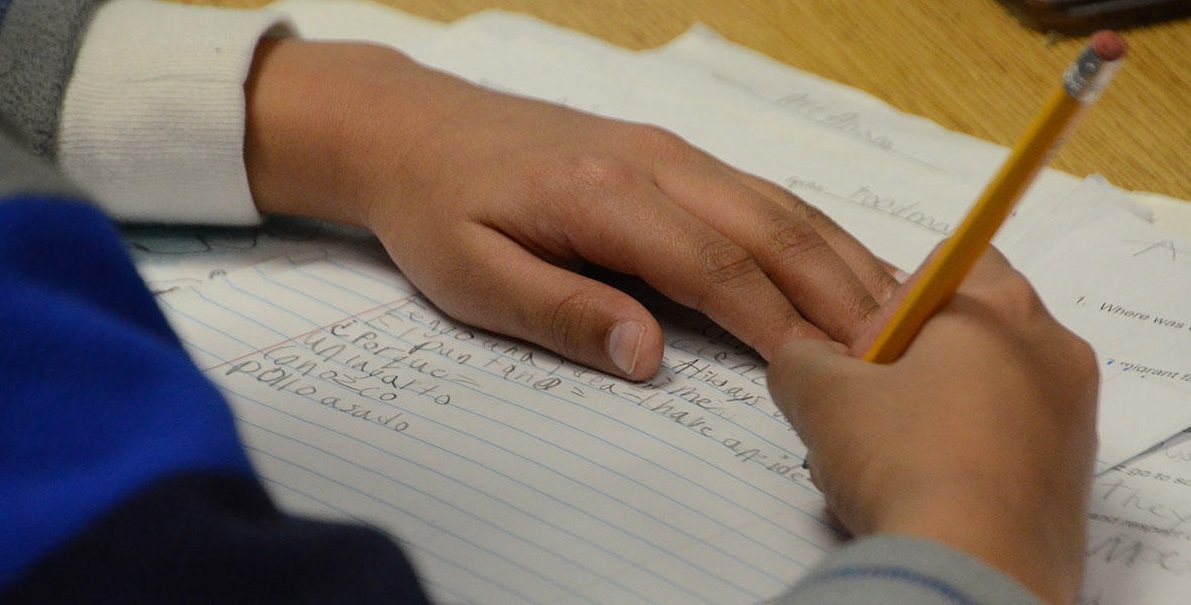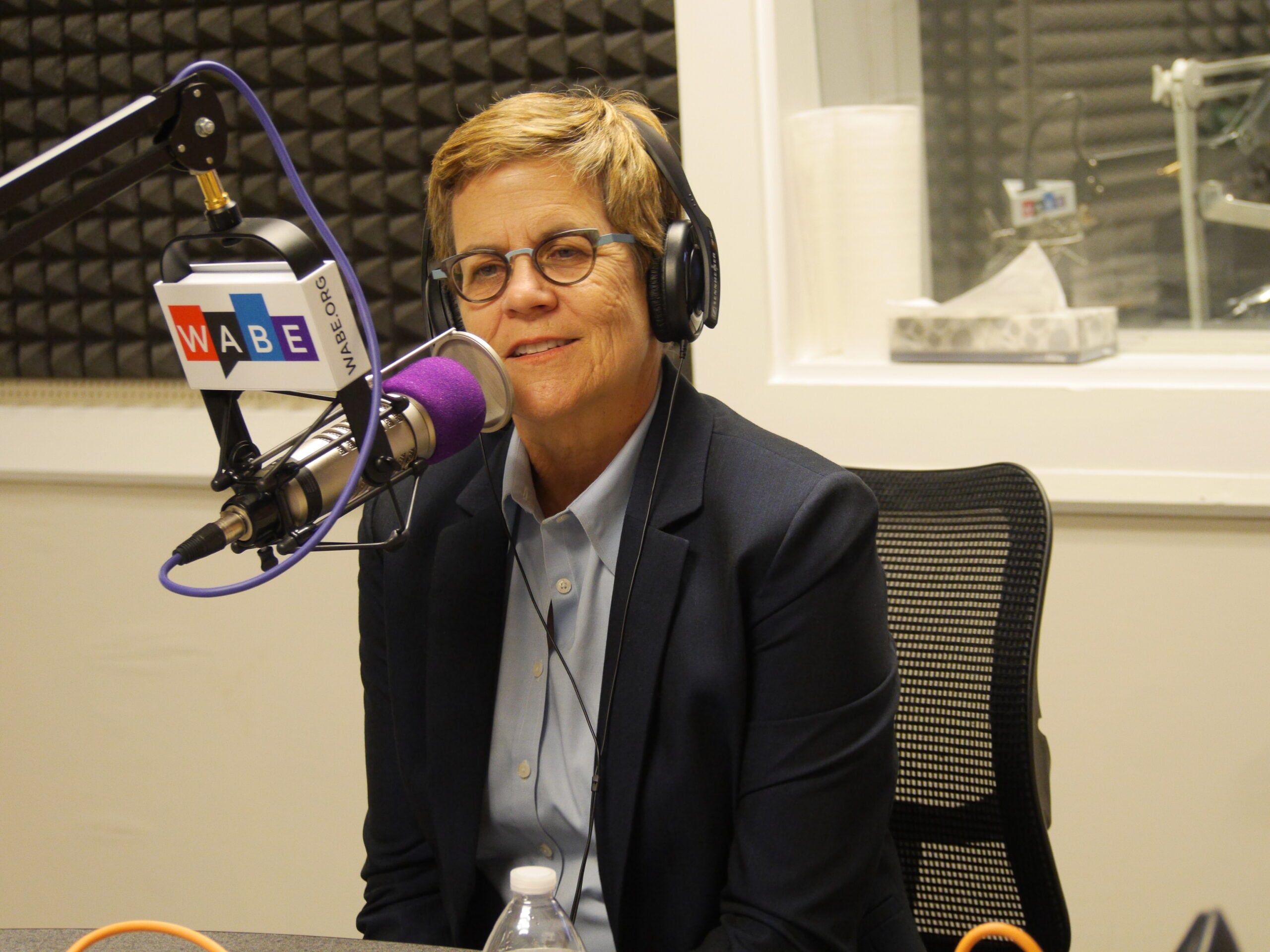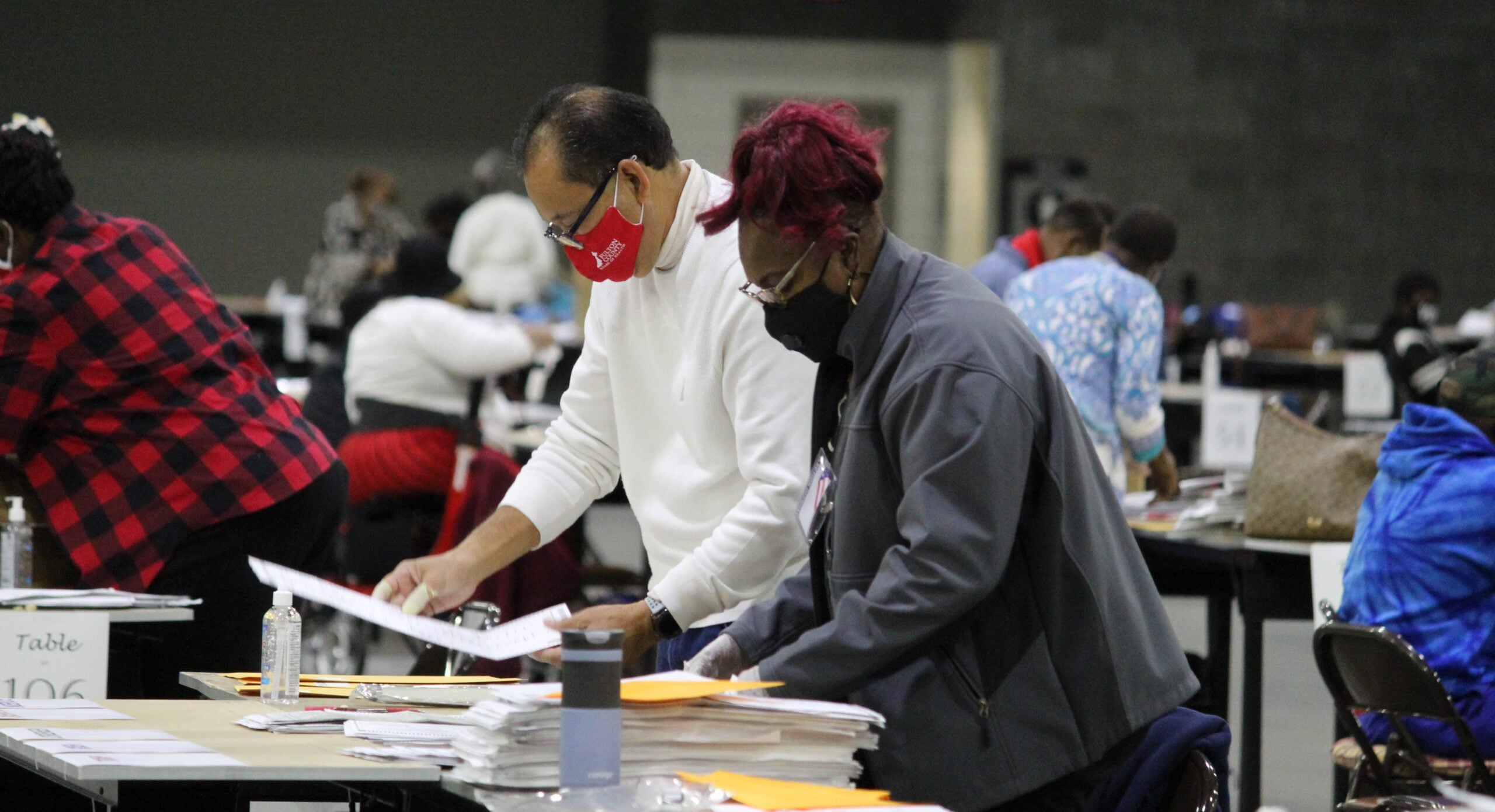Hear the broadcast version of this story.
Georgia voters will decide this fall whether to give the state the authority to take over schools it labels “chronically failing.” The plan would create a separate, state-run district for those schools. This idea has only been tried in a few other states, with mixed results.
Earlier this month, a coalition of groups held a rally at the state Capitol to express their opposition to the plan. They marched to Liberty Plaza, across the street from the Gold Dome, chanting, “You can’t take our public schools! Local control rules!”
The group then delivered hundreds of wooden rulers to Gov. Nathan Deal’s office, signed by teachers and students, which said, “Local control rules!”
What’s Been Tried
Representatives from different groups, including the state PTA and the Committee to Keep Georgia Schools Local, explained why they opposed the plan.
“Every place that this model has been tried – including New Orleans, Memphis, Tennessee, Nashville – everywhere this model has gone, it has failed,” said Georgia Association of Educators President Sid Chapman.
Whether school takeover models have “failed” in other states is up for debate. Georgia’s plan is partly inspired by a system used in Louisiana to rebuild New Orleans’ schools after Hurricane Katrina, but it’s more closely based on a model used in Tennessee. State officials there created an “Achievement School District” in 2012. It now runs more than 20 low-performing schools.
Gary Henry, a professor of public policy at the Peabody College of Education at Vanderbilt, studied the results of the ASD after three years.
“We found no evidence that the students performed either better or worse than the priority schools that were not a part of the Achievement School District,” Henry said.
Georgia’s plan would create a similar setup, called an “Opportunity School District.”
Henry said Georgia’s plan is missing the one thing school turnaround plans need to be successful.
“There’s nothing in the legislation that suggests that the resources needed to turn around these chronically low-performing schools are going to be added,” he said.
Tennessee’s plan was funded through a federal education grant. New Orleans received millions in philanthropic donations and public money after Katrina.
Henry said without additional resources, like more money to pay and keep good teachers, nothing will change for Georgia’s low-performing schools. Critics of the takeover plan have blamed past education budget cuts for stunting schools’ improvement. But Deal has staunchly disagreed.
“The underlying issues facing our classrooms today, and the challenges that often lead to academic failure cannot be solved by simply throwing more state dollars at the issue,” Deal said during a speech last year.
Performance Under Pressure
Advocates of school takeover plans say sometimes the mere threat of state intervention can motivate schools.
“You need that external state pressure, like an ASD, to be able to incent the local school district to do what they can do, and could always have done, to best support their students,” said Malika Anderson, the superintendent of Tennessee’s Achievement School District.
That’s been part of the governor’s argument for his takeover plan: if schools were doing their best, the state wouldn’t need to step in.
There are signs that applying pressure has had an effect.
Districts with the most schools on the list – namely Atlanta and DeKalb – have developed their own plans to turn around schools ahead of the vote. They’ve invested heavily in them.
Atlanta Public Schools Superintendent Meria Carstarphen said those reforms needed to happen anyway.
“We were already working on our turnaround,” she said. “That’s why I was hired.”
But Carstarphen admitted Deal’s takeover plan accelerated the timeline.
Hope Or Hazard?
Recent polls from the Atlanta Journal-Constitution and WSBTV have shown most likely voters oppose the takeover. In each case, about a third of voters support the plan.
Even though Tennessee’s Achievement School District hasn’t seen significant strides yet, one mother in Memphis said it’s had an impact on her family. Marquita Finnie has four children in the district. She said they’re more engaged in school, and talk about going to college now.
“I stand on hope,” Finnie said. “If you give a child hope, they’ll want better. They’ll push themselves and they’ll push [their] parents. That’s my spiel; you’ve got to give a child hope.”
Proponents of Georgia’s takeover plan say it will give hope to families here, who have children stuck in failing schools. Opponents say the data from Tennessee and Louisiana are not solid enough to take that kind of risk in Georgia.
Like us on Facebook

9(MDAxODM0MDY4MDEyMTY4NDA3MzI3YjkzMw004))







